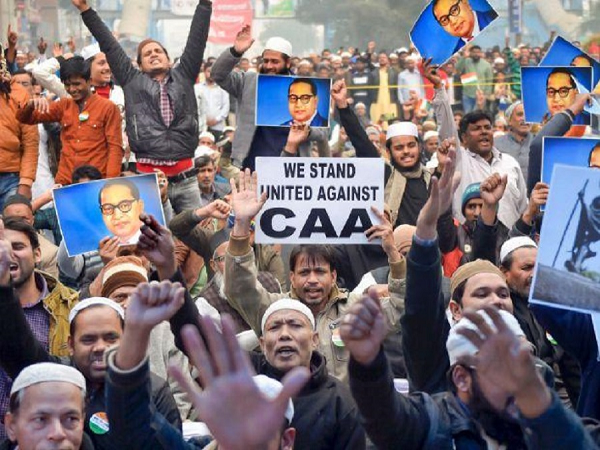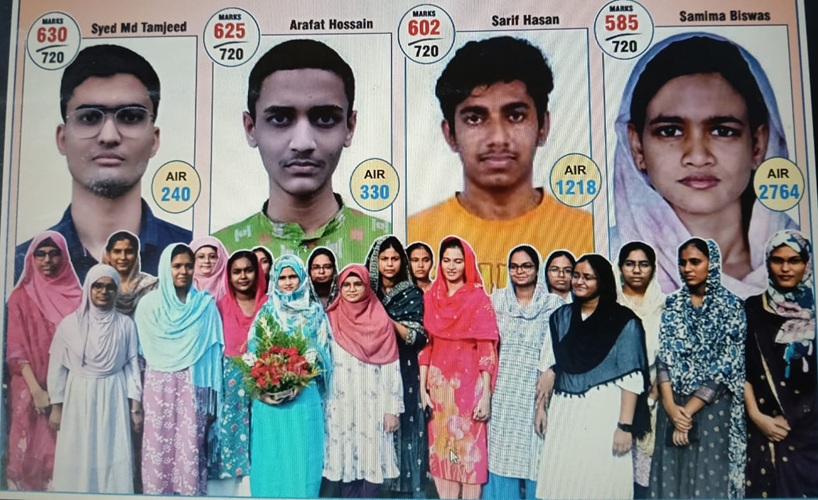The last full hearing on the case was on March 3 in which the apex court once again refused to stay the application of controversial law
NEW DELHI – A whopping 204 writ petitions challenging the constitutionality of the Citizenship (Amendment) Act, 2019 (CAA) are pending with the Supreme Court. The Bill to the effect was passed by the Parliament this day last year on December 12, 2019. It amended the Citizenship Act of 1955 to lay down that “persons belonging to minority communities, namely Hindus, Sikhs, Buddhists, Jains, Parsis and Christians from Muslim dominated Afghanistan, Bangladesh and Pakistan, “who entered India on or before 31st December, 2014 shall not be treated as illegal migrants for the purposes of that Act”.
Even though these petitions have been pending for almost a year, there has been no substantial progress in the case. The last full hearing on the case was on March 3, 2020, in which the apex court once again refused to stay the application of the controversial law and gave the Centre a further two weeks to respond. The matter was posted to be taken up after the Holi festival break, but because of the coronavirus related lockdown, physical hearings of the Supreme Court stopped completely and CAA related petitions were put on the back burner.
Another worrying fact is the witch-hunt of anti-CAA activists in Delhi and Uttar Pradesh.
The Delhi Police made a series of detentions in the name of investigation into Delhi riots that marred the northeastern part of the national capital claiming 53 lives, two-third of them Muslims, and wounding and displacing hundreds. It has named fifteen people as accused in a 17,500-page chargesheet filed over the violence, viewed generally as anti-Muslim pogrom.
According to the sources, those named in the chargesheet are Taahir Hussain, Mohd Parvez Ahmed, Mohd Illyas, Saifi Khalid, Ishrat Jahan, Miran Haider, Safoora Zargar, Asif Iqbal Tanha, Shahdab Ahmed, Natasha Narwal, Devangana Kalita, Tasleem Ahmed, Saleem Malik, Mohd Saleem Khan and Athar Khan. All of them are behind bars. Besides, JNU scholar Sharjeel Imam and former JNU student leader Umar Khalid have also been arrested. The police have chosen the UAPA as a weapon against many of those detained.
Similarly, UP government targeted those who took part in anti-CAA protests. The UP Police booked and arrested thousands of protesters. UP Chief Minister Yogi Adityanath even vowed to take revenge and attached properties of the protesters for recovery of damage to government properties presumably caused during protests. The government also put up hoardings with the personal details of anti-CAA activists.
In August, the United Nations Special Rapporteurs on Human Rights raised with the government of India the continued detention of 11 of those opposed to CAA. The government responded to the communication by saying that action against them has been taken as per the provisions of law. But rights activists were not satisfied with the government’s reply. They questioned the manner in which the activists are being kept in detention without a speedy trial. The government is behaving in the most undemocratic manner, they said.
“The government has not accepted the basic facts and replied in a proforma manner. The government should have acknowledged the human rights defenders and political activists are being kept in detention without a speedy trial. There should have been day-to-day trials. The resort to slow procedure has become the punishment. But here the government is in complete denial. They are acting like Belarus and China,” civil rights activist Ravi Nair told clarion India in August.






0 Comments